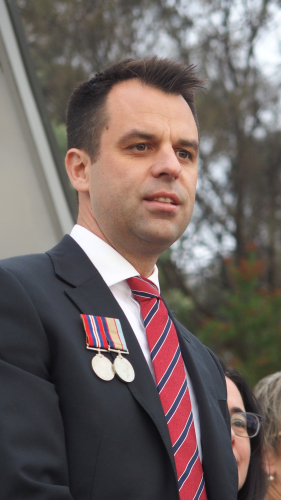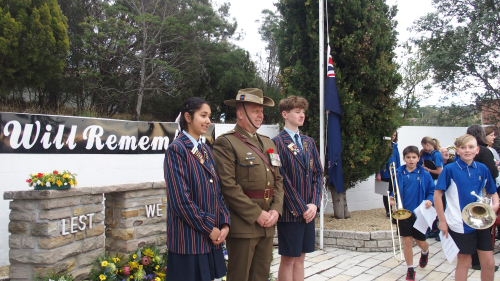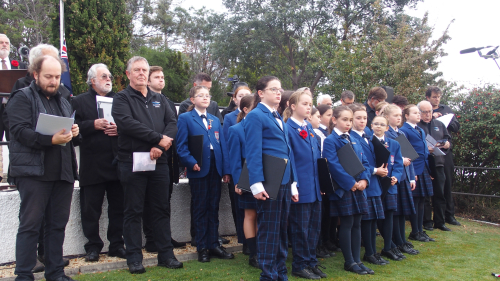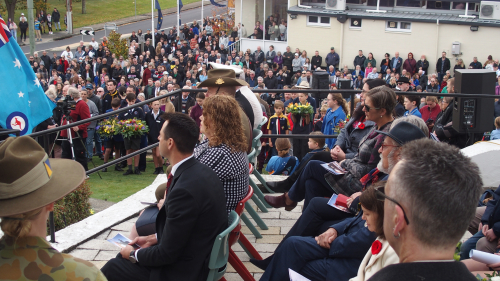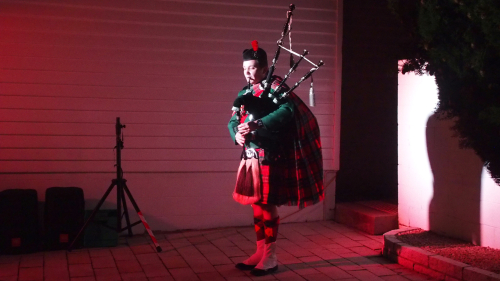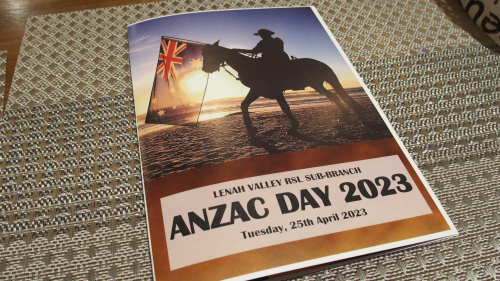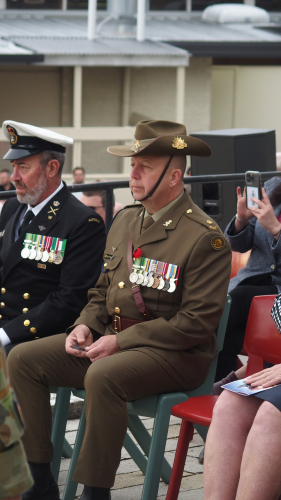Australians are well versed in the ANZAC story, as demonstrated by your presence here today. Thank you for coming to remember the courage of those who have served. Before dawn on the 25th April 1915, the brave souls of the Australian and New Zealand Army Corps landed on a foreign soil on the shores of the Gallipoli peninsular.
The men were part of a British and French led invasion. The Allies mission was to destroy Turkish guns that were preventing naval ships from reaching and bombarding the Turkish capital, Constantinople. If they succeeded, Türkiye might be forced out of the war and Germany would lose an important ally.
Some 2000 Australians were killed or wounded on this darkest of days. It was a day of confusion and fear. At Anzac Cove, the Australians were first to land. Among them was Tennyson Harold Cairnduff, also known as Tiny. Tiny was just 19 years old.
He witnessed the best and worst of humanity on that dark day - death, wounding and sorrow. But it was matched by courage, selflessness and loyalty to our country - values we cherish.
Tiny was a resident of New Town when he enlisted in the army on the 20th August 1914. He was allocated to the 12th Battalion, a company that embarked from Hobart just two months later on the 20th October 1914.
I am sure I am not the only one here trying to imagine what it would be like to walk in his shoes at such a young age and think about how we would deal with the same circumstance. Once at Gallipoli, Tiny and his mates were only able to advance about a mile in some places, less in some other areas and a stalemate developed.
By December that year, the ANZACS were evacuated in a remarkable military operation that saved many lives. By then, 8,700 Australians and almost 2,700 New Zealanders had been killed. They were some of the 130,000 soldiers killed from both sides at Gallipoli.
But, like many, Tiny wasn’t spared from the battlefield after Gallipoli and was transferred to the western front in France. There he was gassed, then he received gunshot wounds to his left arm and shoulder. His shoulder was shattered so badly from machine gun fire that it resulted in his arm being amputated.
In September 1918, Tiny returned to Australia where he was discharged on medical grounds. Tiny was one of the founders of the Lenah Valley RSL. If you have time today, please go and view the powerful painting of the landing of Gallipoli inside the club that Tiny donated. Tiny lived a life of service and he continued to serve the club until his death on the 4th August 1951. He was only 58.
Anzac Day has been one of the most important dates on Australia’s calendar since 1916. Originally it gave people the chance to honour the original ANZACS. People like Tiny who served at Gallipoli. It then grew to include all who served in the First World War. The Second World War followed. My Pop, like many of your family members, served during that war and I am proudly wearing his service medals today.
Today, Anzac Day has evolved and become a day where we honour all who have worn our country’s military uniform. Today we reflect on their courage and show gratitude for their service; whether it be Vietnam, Korea, various peace keeping missions, Afghanistan or Iraq.
My cousin, Tom Anderson, served in East Timor twice and Afghanistan twice. I am very proud of him and his service. It has also given me insight into how service in war affects families. I am sure there are many of you here who understand too. Tom and I are of a similar age and we are mates. Tom is a quiet bloke and he doesn’t like a fuss. I have asked his permission to speak about him today.
Tom always had a desire to serve his country, even as a little boy. He first enlisted in January 2005 and served in the 2nd Battalion, Royal Australian Regiment. After an initial deployment to East Timor, in a peacekeeping mission, he was sent on a tour of Afghanistan for seven months with Charlie Company in 2007.
He was based in Tarin Kot, Uruzgan Province. His first tour of duty in Afghanistan was confronting. I won’t go into detail but he was essentially on a mission to seek out and close the enemy and seize and hold ground ahead of other units, who would build secure checkpoints or patrol bases to operate out of.
I can say, like many servicemen before him, he experienced many distressing situations. He was never far from our thoughts and for his immediate family, parents Sue and Ian and sister Georgie, it was a particularly stressful time. News bulletins filled with combat incidents and casualties on the other side of the world suddenly took on a whole new meaning for our family.
I vividly remember my heart skipping a beat listening to a report on the radio as I crossed the bridge. I have no doubt it is an experience shared many thousands of times over by family members of those who have served. Thankfully Tom returned to Australia safely. The year was 2008.
Soon news of another tour came and this time Tom would be providing security for local government figures, senior military diplomats, aid workers and other government agencies as part of an effort to rebuild the country. The fighting on this tour was just as intense.
My mum, in the meantime, had discovered that acorns were a symbol of good fortune. The tradition started when English soldiers carried them during the Norman Conquest. She gave Tom a couple of acorns that had grown nearby before he left, not only for good luck but also as a little piece of home. Tom isn’t a superstitious person but he put them in a small leather pouch and placed them in his pocket, thinking he may need some luck.
Like many veterans, Tom doesn’t talk about his experiences much. But with a bit of larrikin humour, he jokes from time to time that my mum saved his life. The pouch and acorns were in his pocket when a convoy he was travelling in were pinned down in an Afghan village. Tom had to get out of the armoured vehicle to try and get the convoy moving again. He took cover behind a car in the street. He soon realised it was a planned ambush and the car had a bomb in it the enemy were trying to detonate.
That day, fate fell his way and the bomb failed to detonate or maybe it was acorn luck? I admire Tom and his colleague’s courage, selflessness and loyalty to our great country to face these sorts of situations.
Modern day veterans like Tom walk amongst us every day and the ANZAC spirit remains strong. Here at this club there are people like Josh Weir. Josh is an active committee member of the Lenah Valley RSL. He enlisted in 1995 and served with the 2nd Cavalry Regiment on tours of Bougainville and Iraq.
These members of our community allow us to continue to hold onto the pride that started at Gallipoli. They help understand the enormous cost of war, the toll it takes on families and communities - and we say thank you for your sacrifice.
Before I finish, I would like to note that this year marks 100 years of Legacy. It has provided care and compassion to widows, widowers, children and dependents of veterans and the wider veteran community.
Legacy was formed in 1923 when Major General Gellibrand realised the dire circumstances of the tens of thousands of veterans, widows and children in the aftermath of war. Today, Legacy supports about 43,000 Australians.
To commemorate the anniversary and in salute to the bravery of veterans and families, the Legacy Centenary Torch Relay is being held across six months. It started in Pozieres two days ago and will travel to the UK and Australia, stopping at all 45 Legacy clubs world-wide. It will finish its journey at the Shrine of Remembrance.
So today, I would like to finish by saying thank you to Legacy for supporting those who have given so much to us.
Lest we forget
ANZAC Day address: by Hon Josh Willie MLC – at The Cenotaph, Lenah Valley RSL
Source: Hon Josh Willie MLC, Tuesday 25th April 2023
...with thanks.


